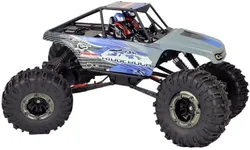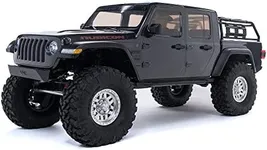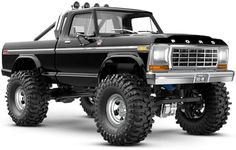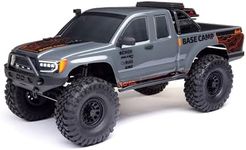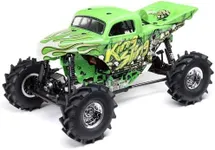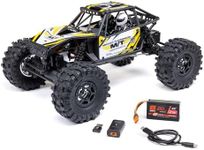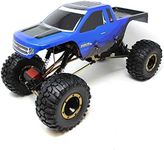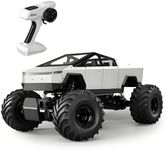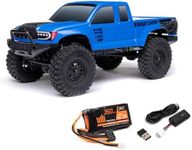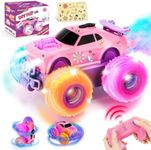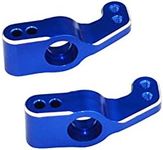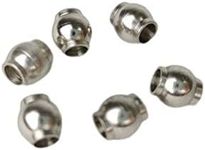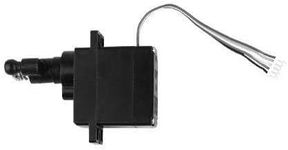Buying Guide for the Best Rock Crawler Rc Trucks
Choosing the right rock-crawler RC truck can be a thrilling yet challenging task. These remote-controlled vehicles are designed to tackle rough terrains and steep inclines, making them perfect for off-road enthusiasts. To ensure you pick the best fit for your needs, it's important to understand the key specifications and how they impact performance. By considering your specific requirements and preferences, you can find a rock-crawler RC truck that offers the right balance of power, durability, and control.Motor TypeThe motor type in a rock-crawler RC truck is crucial as it determines the power and efficiency of the vehicle. There are two main types: brushed and brushless motors. Brushed motors are generally less expensive and provide adequate power for beginners. Brushless motors, on the other hand, offer more power, efficiency, and longevity, making them ideal for more experienced users who want better performance. If you're new to RC trucks, a brushed motor might be sufficient, but if you're looking for high performance and durability, consider a brushless motor.
Battery Type and LifeThe battery type and life affect how long you can enjoy your rock-crawler RC truck before needing a recharge. Common battery types include NiMH (Nickel-Metal Hydride) and LiPo (Lithium Polymer). NiMH batteries are more affordable and easier to handle, making them suitable for beginners. LiPo batteries, however, offer higher power density and longer run times, which are great for advanced users seeking extended playtime. Consider how long you plan to use the truck in one session and choose a battery that matches your needs.
Suspension SystemThe suspension system in a rock-crawler RC truck is essential for handling rough terrains and providing a smooth ride. A good suspension system will absorb shocks and maintain traction on uneven surfaces. Look for trucks with independent suspension systems or multi-link suspensions, as these offer better flexibility and control. If you plan to tackle extremely rough terrains, investing in a truck with a high-quality suspension system will enhance your experience.
Tire Type and SizeTire type and size play a significant role in the performance of a rock-crawler RC truck. Larger tires with deep treads provide better grip and stability on rocky surfaces. Soft compound tires offer more traction but may wear out faster, while harder compound tires last longer but may not grip as well. Consider the type of terrain you will be driving on most frequently and choose tires that offer the best balance of grip and durability for those conditions.
Chassis MaterialThe chassis material affects the durability and weight of the rock-crawler RC truck. Common materials include plastic, aluminum, and carbon fiber. Plastic chassis are lightweight and affordable but may not be as durable. Aluminum chassis offer a good balance of strength and weight, making them suitable for most users. Carbon fiber chassis are the most durable and lightweight but come at a higher cost. If you plan to use your truck in harsh conditions, investing in a more durable chassis material can be beneficial.
Control RangeThe control range determines how far you can operate your rock-crawler RC truck from the transmitter. A longer control range allows for more freedom and flexibility, especially in larger outdoor areas. Most entry-level trucks offer a range of around 100-200 feet, which is sufficient for casual use. Advanced models can offer ranges of 300 feet or more, ideal for serious hobbyists who want to explore larger terrains. Consider where you will be using the truck and choose a control range that suits your needs.
WaterproofingWaterproofing is an important feature if you plan to use your rock-crawler RC truck in wet or muddy conditions. Waterproof electronics and components ensure that your truck can handle splashes and even submersion without damage. If you frequently drive in environments where water is present, look for models with waterproof features to protect your investment and ensure long-term durability.
